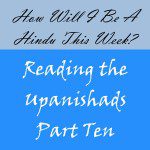Each month Patheos offers its bloggers books that they can read for free and review. Even though most of them are Christian, including this one, I requested it because it is about a struggle with infertility. As Brad and I are about to embark on the journey towards potential parenthood, this book seemed very relevant for us.
There’s no reason to think that we will have trouble conceiving, but it’s always a possibility and so I thought it would be good to learn about how this real life couple overcame their frustration at not being able to have a child.
The book is about what happens after a couple who desperately want to be parents spend ten years trying everything they can and are unable to fulfill that dream. They decide to take a year to travel and find themselves again, a “consolation prize” for the wife who is the most devastated by the situation.
Brad and I read this together.
Impressions as I read:
- Christians have their own special language.
- Surprised they didn’t consider using donor sperm and their early dismissal of adoption reads as really snobby. To answer their question: yes I have no doubt that you can love a non-biological child every bit as much as a biological one.
- I expected them to call out God more. They’ve prayed for a baby and God has let them down. Where is the anger? Where is the questioning?
- Once they decide to do the resurrection year, we lose all sense of purpose in the book. It goes from a sensitive essay on loss to a lovely, but boring, description of Italy. I don’t care about that and I’m losing interest fast.
- Finally once they leave Italy, there’s some actual soul searching. Mostly in reading other people’s books on theology.
- In this guy’s world there are people of faith and there are non-Christians. There is absolutely no space in his world view for people of faith who are not Christian. He sees people who are Christian and people who have no faith or have become spiritually lost. There is never an acknowledgment of the existence of any other faith system.
- The author loves lists. He likes to just list names of people.
Though Sheridan is the writer, I think the story is much more his wife’s and I wish she had written the book. She is the one who longed for a child and whose dream was crushed. In the first third of the book it is interesting because Sheridan has to let go of his dream in order to give Merryn something, a “consolation prize.” There was some conflict there. Also we saw a lot of their conversations about having children and what it meant to them. But she is the one who is really struggling with faith and needing to be healed and we don’t get enough of her voice.
Once they leave for their resurrection year, that conflict is gone. They’re just touring around someplace. Eat, Pray, Love did that really well: showing the inner angst and how it related to the travels, but this book turns into just a travel journal and nothing more for a while. We even stop seeing much of Merryn’s perspective. She’s the one supposed to be healing here, but I don’t know what Italy is doing for her.
It’s hard to get through the irrelevant and boring part on Italy in order to get to the part where they really start their lives over again. They finally start to get into it more than half way through the book at a retreat in Switzerland. There at last we get back to the philosophical question at the heart of this struggle: Why isn’t God giving them a child? Is it in His control at all? The part on Italy should have been taken out. It was irrelevant to the story and loses the momentum so it’s too easy to lose interest in the book and wander away from it before they ever get to any philosophical insight.
Still, even this part is not well balanced. I don’t feel them living this experience, I’m just listening in as they talk about various theological books Merryn is reading and summarizing their points.
In order to really get past something as sad as losing this dream as a religious person, they needed to show us more of the pain. I don’t buy it that they prayed a lot and surrendered to God’s will. They prayed and asked for a child, which God did not give them. That requires a real intense examination of what prayer is and what God is. Like most modern tales of faith, I felt like they were afraid to go there fully. Afraid to show, expose, and admit the depth of anger or frustration at God. Without that, the story is meaningless. There was some digging into this question, but I was expecting a lot more.
It can be hard to relate to the Christian view of God as someone who messes with every individual moment of people’s lives. I relate more to the idea that God created a world that functions within certain rules and He isn’t going around breaking those rules all the time because he likes one person more than another or whatever the reason is. If every prayer changed the world, there would be some serious chaos, not to mention people whose prayers are not compatible with one another’s. I don’t entirely understand this expecting God to intercede in our lives all the time. If there is something I want and the universe does not seem to be providing it easily, I look at what I could do to change my behavior and thoughts to make that outcome a more likely consequence of my actions. I work with my karma to achieve my dreams.
My favorite part of the book is the retreat in Switzerland. That’s the only place where they have the really tough questions and ponder the nature of God. The email Merryn sends summarizing their experience at the retreat is the best part of the book. And it’s her voice. So it again seems to me like this book would have been better served being written by her.
I did like how it showed that their painful experiences may have given them the knowledge to minister to and help others. It seemed like in the end of the book the lesson was that they had different work to do. I guess they see it as spreading the word of the Christian God. It is an ongoing journey and the author acknowledges that. Being at peace with their infertility is going to be something they work on throughout their lives, I think.
What it Brought Up For Us:
Brad and I have already talked a lot about these kinds of things, but it was helpful to have the book bringing things up for us to then talk about further. For example, the couple in the book tries IVF a number of times. They decide that it is consistent with their religious belief as long as all embryos are implanted and none are discarded. My belief informs me in a different way. I have already decided that if Brad and I cannot conceive naturally, we will not be trying IVF.
I do believe that we have all our experiences for a reason. Because of my belief in karma/sanskara, IVF feels to me like interfering too much with the natural order. If I’m not meant to be a mother, I don’t want to chase expensive options to force the universe to do what I want it to do. But thanks to my belief in reincarnation I also know that my purpose this life may not involve motherhood, while it could during my next life. If having children proves to be difficult, my response will be to look at what other ways I can positively effect the world and what other purpose this lifetime might have. That isn’t a belief that reflects at all on anyone else’s choice to use IVF. I just don’t feel comfortable with doing it.
Adoption is something I’m on the fence about. So again, it was good to have this book bring up these topics of conversation for us so we could explore them more. Brad sees adoption as a logical step in the list of potential avenues to having a child. I am more nervous about pursuing that because Mr. MacLaren used to say that when you adopt you’re getting a child with sanskara that doesn’t match your family, you may not know how to help that child.
Thoughts Irrelevant to the Point of the Book:
Why is it that Christians get to have their own version of everything that’s just for them? They are an entire genre of books. There’s, like, the thing and then the Christian version of that thing. Radio and Christian radio. Books and Christian books. Movies and Christian movies. Publishing houses and Christian publishing houses. Mother’s groups and Christian mother’s groups. I wish I could be Christian just for the crazy networking opportunities. Christians love to help out other Christians. Breaking into the Christian market is a lot easier than the mainstream market because 1) it is niche and 2) it taps into that Christians helping Christians thing. I totally need to start writing Christian fiction. I could pull that off, right? Right?!
This book brings this up for me because the author’s entire career is built on leveraging being a Christian. I don’t think he would have achieved his dream of hosting a radio program and writing books if he had not had that advantage. I doubt this book would have been published if it hadn’t been through a Christian publishing house. He did struggle to get interest, so I have to give him that (and it’s a little weird that part of the book is the work he did to get it published), but it really seems like from my perspective that you tell enough people you’re a Christian, and stuff gets done.
Brad also said that his biggest impression from the book was the incredible depth of Christian privilege. Everywhere they went had a Christian backdrop to it: Christian artwork, myths, cultural ethos and they never questioned that. They never had to see beyond the ends of their Christian noses, no matter where they went.
In Conclusion:
I had hoped that this book would offer insight on how to deal with the disappointment if we find ourselves unable to be parents, but it did not provide a road map for the emotions of that experience. It’s nice to know that people CAN get past that, but I did not get to really see what made their resurrection plan actually work. Still, I think it is valuable to see that this devastation is something people can deal with. It makes me think about what my backup plan would be if I am not able to have children.
The writing is very good on a sentence to sentence level. I think the organization of the story as a whole wasn’t great, but the sentences themselves were often lovely and very polished. It gets distracted many times describing history of locations that are not important to the story, but the descriptions are pretty.
I think that if you are not a Christian, you probably will not enjoy or get much out of the book. It certainly grated on me. If you are a Christian, you’ll probably really enjoy it.













